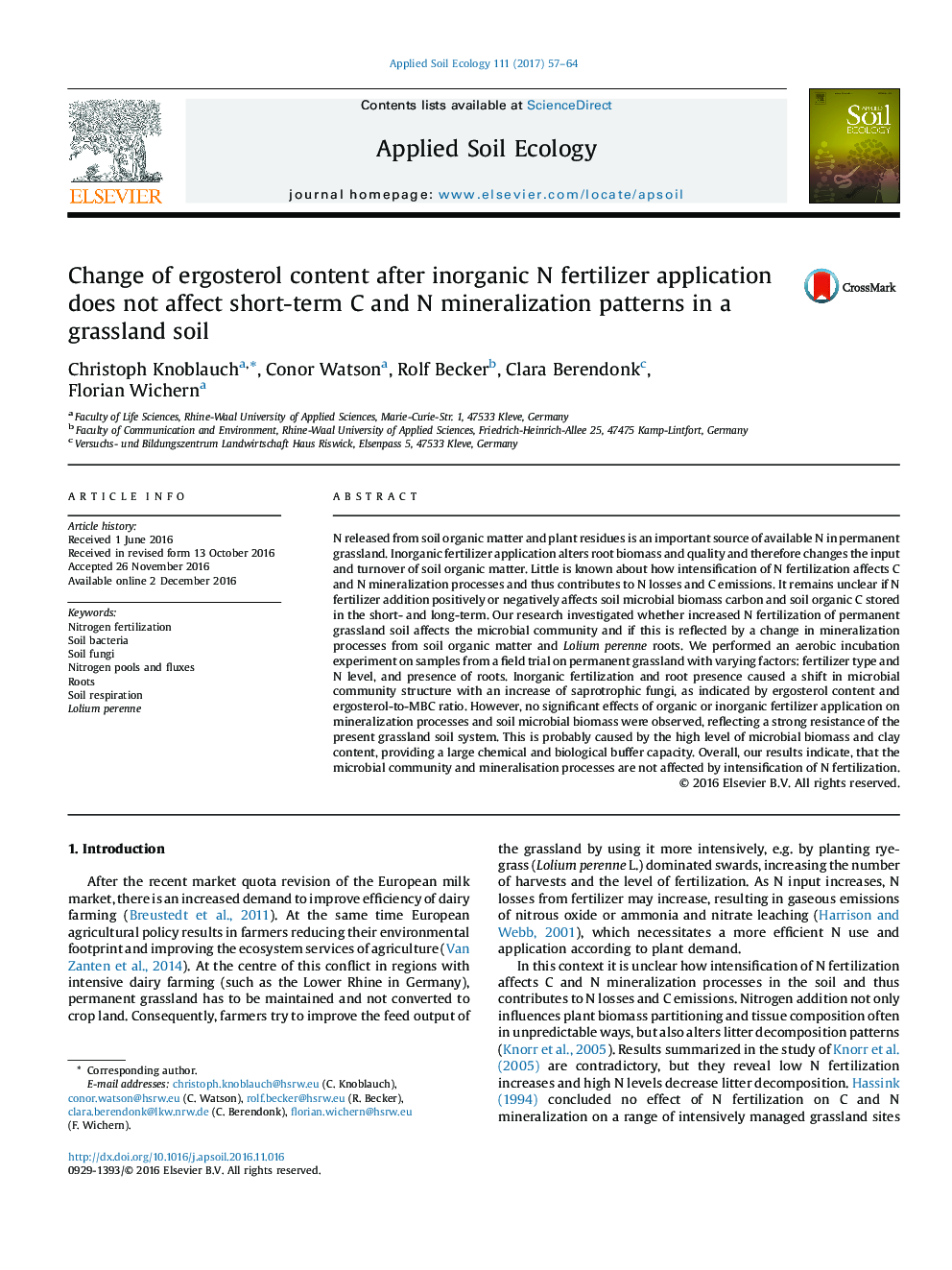| Article ID | Journal | Published Year | Pages | File Type |
|---|---|---|---|---|
| 5742794 | Applied Soil Ecology | 2017 | 8 Pages |
â¢Investigation of N fertilizer on microbial biomass and mineralization in grassland.â¢Effects of root residue presence on mineralization processes were evaluated.â¢No effects of fertilizer type or level on soil microbial biomass and activity.â¢The microbial community of the grassland soil has a high level of resistance.â¢Roots and inorganic fertilizer resulted in relative increase of saprotrophic fungi.
N released from soil organic matter and plant residues is an important source of available N in permanent grassland. Inorganic fertilizer application alters root biomass and quality and therefore changes the input and turnover of soil organic matter. Little is known about how intensification of N fertilization affects C and N mineralization processes and thus contributes to N losses and C emissions. It remains unclear if N fertilizer addition positively or negatively affects soil microbial biomass carbon and soil organic C stored in the short- and long-term. Our research investigated whether increased N fertilization of permanent grassland soil affects the microbial community and if this is reflected by a change in mineralization processes from soil organic matter and Lolium perenne roots. We performed an aerobic incubation experiment on samples from a field trial on permanent grassland with varying factors: fertilizer type and N level, and presence of roots. Inorganic fertilization and root presence caused a shift in microbial community structure with an increase of saprotrophic fungi, as indicated by ergosterol content and ergosterol-to-MBC ratio. However, no significant effects of organic or inorganic fertilizer application on mineralization processes and soil microbial biomass were observed, reflecting a strong resistance of the present grassland soil system. This is probably caused by the high level of microbial biomass and clay content, providing a large chemical and biological buffer capacity. Overall, our results indicate, that the microbial community and mineralisation processes are not affected by intensification of N fertilization.
